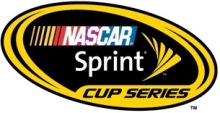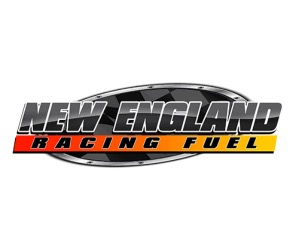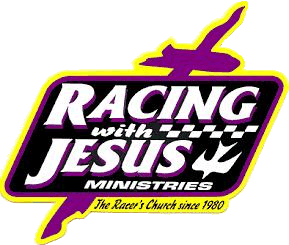(Press Release from NASCAR Integrated Marketing Communications)


In effect as the 2016 NASCAR season prepares to kick off this weekend, the new Charter system addresses three key areas – participation, governance and economics – to promote a more predictable, sustainable and valuable team business model. The agreement grants NASCAR Sprint Cup Series Charters to 36 teams, establishes a Team Owner Council that will have formal input into decisions, and provides Charter teams with new revenue opportunities including a greater interest in digital operations.
“Today represents a landmark change to the business model of team ownership in NASCAR,” France said. “The Charter agreements provide nine years of stability for NASCAR and the teams to focus on growth initiatives together with our track partners, auto manufacturers, drivers and sponsors. The Charters also are transferable, which will aid in the development of long-term enterprise value for Charter members.”
The system affords Charter teams that remain in good standing more predictable revenue over the nine years of the agreement. Along with improved financial certainty, the new framework is designed to increase the long-term market value of teams and provide the ability to plan farther ahead with existing, new and prospective partners.
Similar to the five-year sanctioning agreements that NASCAR begins with tracks in 2016, team owner Charter agreements allow for longer planning cycles around competition, innovation, digital marketing, governance and research and development.
“The new Charter program strengthens each of our businesses individually and the team model as a whole, which is good for NASCAR, our fans, drivers, sponsors and the thousands of people who we employ,” said Rob Kauffman, co-owner of Chip Ganassi Racing. “This will give us more stability and predictability, and it will allow us to take a more progressive, long-term approach to issues.
“NASCAR and the teams share a desire to preserve, promote and grow the sport and ultimately produce great racing for our fans and partners. These common goals served as the foundation for discussions and helped bring us to this unprecedented agreement. This is a great step forward for the entire sport made possible by Brian France setting a new course for the NASCAR industry and the owners coming together on shared issues. Everyone involved then compromised a bit to be able to come up with something that worked for all.”
Each Charter team owner has a guaranteed entry into the field of every NASCAR Sprint Cup Series points race. To maintain the historical openness of NASCAR racing, the balance of the field will be open for team owners who do not hold Charters. These Open team owners will compete for the remaining starting spots and positions in the race, as each event in the NASCAR Sprint Cup Series’ starting lineup shifts in 2016 to a 40-car field.
“The new team owner agreements will offer a more appealing environment for both current and prospective team owners at the NASCAR premier series level,” France said. “I’ve always stressed that if we can do things to improve the business of our stakeholders, we will pursue it. I’m very proud of what we’ve accomplished today with this agreement.”
NASCAR Charter teams
(Listed by historical inception of race team entity, then numerical by 2015 car number and 2016 car number)
Richard Petty Motorsports – 43 – 43
Richard Petty Motorsports – 9 – 44
Richard Childress Racing – 3 – 3
Richard Childress Racing – 27 – 27
Richard Childress Racing – 31 – 31
Team Penske – 2 – 2
Team Penske – 22 – 22
Hendrick Motorsports – 5 – 5
Hendrick Motorsports – 24 – 24
Hendrick Motorsports – 48 – 48
Hendrick Motorsports – 88 – 88
Roush Fenway Racing – 6 – 6
Roush Fenway Racing – 16 – 16
Roush Fenway Racing – 17 – 17
Chip Ganassi Racing – 1 – 1
Chip Ganassi Racing – 42 – 42
Joe Gibbs Racing – 11 – 11
Joe Gibbs Racing – 18 – 18
Joe Gibbs Racing – 20 – 20
Michael Waltrip Racing – 15 – TBA
Michael Waltrip Racing – 55 – TBA
Stewart-Haas Racing – 4 – 4
Stewart-Haas Racing – 10 – 10
Stewart-Haas Racing – 14 – 14
Furniture Row Racing – 78 – 78
Front Row Motorsports – 35 – 34
Front Row Motorsports – 38 – 38
JTG Daugherty Racing – 47 – 47
JTG Daugherty Racing – 47 – 47
Tommy Baldwin Racing – 7 – 7
Germain Racing – 13 – 13
Go Fas Racing – 32 – 32
BK Racing – 23 – 23
BK Racing – 83 – 83
Premium Motorsports – 62 – 62
Circle Sport Racing – 33 – 95
HScott Motorsports – 51 -15


















It seems the NASCAR “business of racing” is taking more of the actual racing out of racing! If you run quick enough you should qualify. If you don’t, you should go home and find some more speed and handling for the next one. Guaranteed spots for the chosen isn’t racing; it’s a hired in show.
NASCAR is the WWF of auto racing
Right on Fast Eddie. If the keep the provisional spots for the past champions and owner points you could be the fastest car and still go home. How much are the owners going to sell one of their charter spots for.
So are they going to get rid of qualifying altogether?
I guess as long as car counts are low, it doesn’t matter much. This is NOT going to encourage the formation of new teams when very few positions are open to get in.
This is getting worse and worse.
This is going to encourage more teams to buy in. The owners wanted to franchise there race teams like other sports. It gives them value so if they want to sell and get out of racing then you can buy their charter. They are saying Kauffman sold his two from mwr for 5 million or more each. This also gives the 36 charters a piece of the tv money at the end of the year. It a good thing just listen to tommy Baldwin who said with the money to come in every year he can spend more on speed than just trying to get to the track and start and park.
This is what happens when the top decision makers at NASCAR don’t go to the races. As a fan, why on earth would I want to buy tickets for qualifying on Friday now?
NASCAR could have done that charter deal without locking in 36 spots for each race, now a stale product is even less appealing for race fans.
The Daytona 500 is just another Cup series race, and the twin 150s are totally useless.
The less obvious question is, which city will host next year’s Sprint Cup Draft?
I have to agree with Andy. The 150s are useless. They have been for sometime but they will never go away. I found it a little surprising that the Woods Bros weren’t part of the charter. I’m actually having a hard time finding any positives in any of the changes Nascar made to the 3 national series.
By the way, apparently speedweeks is a term that is no longer used. The Daytona Speedway website refers to it as the events formally known as speedweeks.
It make qualifying more exciting now because there is only 4 spot remaining for the rest to get in. No more championships provisional either. Out of the 36 charter teams, they all would get in on owners points in last years qualifying style anyways. I believe there is only 41 or 42 car enter for the Daytona 500 so far.
C’mon, let’s be real. Of course NASCAR is a business. Indy Car is a business. ACT is a business. Stafford Speedway is a business. Sanctioned racing is nothing more than the business of separating fans from their money for the privilege of being entertained for a few hours.
Teams need sponsors. Companies are going to be less likely to spend their marketing dollars on racing if there’s a risk they’re not going to get anything out of it some weeks, because their car doesn’t make the show. That’s a BAD investment; it’s bad business.
Networks need ratings. What do you think happens to those ratings if you never know who’s going to make the show? Ratings will suffer if Kyle doesn’t make the show, if Junior doesn’t make the show.
But, wait! It’s not even as if we have a surplus of cars! 20% of the Cup field (and more in Xfinity and Trucks) is made up of non-competitive teams. The Cup series is down to a 40-car grid because NASCAR knew it was likely they were going to have some short fields this year.
Don’t you think guys like Bud Moore, Junie Donlavey and Bill Davis deserved to have something of value when it was their time to exit the sport?
You want racing that doesn’t involve business? Go watch an Enduro.
Oh, wait… I bet there’s an admission fee for that. Yup! It’s a business!
You want racing that’s not a business? Well… Kenny Wallace used to have a go-cart track in his backyard. His buddies used to come over and race. Jimmy Spencer and his family used to race cars around their junk yard. I just don’t think stuff like that is going to attract a national TV audience.
The days of 50 cars showing up to try to qualify for a Cup race are long, long gone. Qualifying sets the starting order, end of story. And on a restrictor plate track, the drivers are very open about saying starting position doesn’t matter. Even at your local Saturday night track, qualifying is a joke…. EVERYONE makes the show.
I can think of only one race that I attend where qualifying is an ordeal, it has consequences, and lots of drivers — even stars — go home. And that’s the Oxford 250. There are other big races like that around the country… but those are the rare exceptions today.
Racing is dying, folks. Not because racing is bad, but because the world is changing. Shadetree mechanics are a thing of the past. Kids don’t rush to get their licenses any more. Self-driving cars aren’t science fiction any more.
NASCAR’s TV viewership keeps declining. Saturday night short track attendance is down (compared to what it was 30 years ago or more). Racing is on life support. If a charter system helps keeps the Cup series viable… I’m all for it.
I would pay to watch Jimmy Spencer and his family race cars around their junkyard before I would ever pay to go to another Cup race.
Mike86,
Not sure that I agree with everything that you said, but certainly an intelligent, well thought out post. Certainly, I agree that sponsors want to be assured that their dollars are generating maximum exposure, but would that also happen if there were more exciting racing with an element of surprise that generated a larger viewing audience? I mean, really, is it worth more money to get your product in front of 35 million viewers a week guaranteed or to have a chance to get it in front of 70 million viewers because more people are watching.
Certainly not the same issues as what is happening on the short tracks. There, we are more in a situation where the cost of racing has outstripped the ability of teams to raise money to finance the effort. When the dollars required goes up and the pool of available dollars doesn’t, that means that there are less opportunities to access that money.
The bottom line, regardless of why we think it’s happening, is that our sport is slowly becoming insignificant, and will soon go the way of curling (niche sport) if we don’t do something about it soon.
NH Mark says: ” I’m actually having a hard time finding any positives in any of the changes Nascar made to the 3 national series.”
The one change that I absolutely despise is the new, mandatory caution in the Truck series. It’s artificial… it interrupts the flow of the race… it’s as contrary to the nature of racing as is “team orders” in F1.
The ASA tried something like this several years ago, when they were on TV. It pretty much killed my interest in that series.
Mike86 said:
“Racing is dying, folks. Not because racing is bad, but because the world is changing. Shadetree mechanics are a thing of the past. Kids don’t rush to get their licenses any more. Self-driving cars aren’t science fiction any more.
NASCAR’s TV viewership keeps declining. Saturday night short track attendance is down (compared to what it was 30 years ago or more). Racing is on life support. If a charter system helps keeps the Cup series viable… I’m all for it.”
That really sums it up. We are no longer a car-centric society. The days of American Graffiti and the car culture are long gone. The “Fast and Furious” franchise has not promoted the car craze.
I would not go as far as to say racing is dying. It is receding to fit the size of the audience.
Many years ago, a car represented freedom in so many ways. Today, a car is a commodity, and many are choosing to eschew that commodity.
This is what the owners wanted and came up with. It took 18 months for the owners to convince NASCAR to go along. Read what the owners are saying before you make you opinion. This should be a wake up call to the wmt owners to get together to pressure NASCAR to inject more money into the purse or they walk.
All owners should get a charter, not just a few. And the charter should have nothing to do with getting into a starting line up. Let’s make racing about racing again, and let these billionaires fight about their greed away from the track. This will make it impossible or at least very discouraging for a new team to attempt to run.
Slightly shady that 2 of the charters went to an owner who said he was shutting down his 2 cars for 2016, buying into a totally different team and was the head of the “RTA” who negotiated the deals between the owners and NASCAR. And the Wood Brothers, who have at least tried to race for the events they have showed up for over the past 60 plus years did not get one, but one other owner who has never attempted to field cars that are competitive in his years in Cup, Xfinity\Nationwide\Busch, and the trucks was awarded a charter
darealgoodfella said: “I would not go as far as to say racing is dying. It is receding to fit the size of the audience.”
Yes, that’s a good way to say it. I guess I’m a little more cynical about it shrinking to a point where it’s no longer viable. I guess maybe racing will be around so long as the Baby Boomers are there to support it. But subsequent generations have less interest in cars in general, and in racing in particular. I do think the extinction of the combustion engine isn’t that far off. And I think we’re going to see a lot of self-driving cars on the road in ~15 years.
Will today’s stock car fans support racing if it involves electric cars? Is the FIA’s Formula E popular? Is it going to be a viable series?
Maybe big-time stock car racing goes away, and we see racing evolve to survive in new, smaller forms, like drifting, TORC, Stadium Super Trucks, Red Bull Global Rallycross, etc. Sort of like the dinosaurs giving way to those pesky little mammals.
Rich C says: “Certainly, I agree that sponsors want to be assured that their dollars are generating maximum exposure, but would that also happen if there were more exciting racing with an element of surprise that generated a larger viewing audience? I mean, really, is it worth more money to get your product in front of 35 million viewers a week guaranteed or to have a chance to get it in front of 70 million viewers because more people are watching.”
I get where you’re coming from. But I disagree that surprises in qualifying will lead to more exciting racing, and to a larger audience for the race.
First, the size of the audience that watches qualifying on tv is minuscule compared to the audience that tunes in to the race itself. People tune in to the race to see their favorite driver(s). They haven’t paid attention to qualifying. They’re just going to be p!$$ed if their driver isn’t on the track — and less likely to invest 4 hours in watching the race, thus dragging down the ratings.
Second, while I may not have the stats to support this, I’ll assert that most qualifying “surprises” manage to stay in the top 10 or top 15 through the first pit stop or two, then they fall through the pack to their natural place. The cream rises to the top. Put Jimmy or Kyle or Kevin or Denny in the back, and they’re going to be running toward the front by halfway. The new teams, and the part-time teams, just can’t compete over the full distance of the race.
And, again, there’s just not enough cars. If you had 50 cars trying to qualify every week, THAT would be exciting if there were no guaranteed starting spots. But we barely have enough cars to fill a 40-car field.
When companies invest $10M, $12M, $15M or more in a sponsorship, they’re not looking to gamble. They’re looking to get their logo in front of a certain number of eyeballs over the course of the season.
I have to think that at least some sponsors would want a stipulation in their contract that required the team to return some money if they failed to make a race. That’s just going to weaken a team. Miss a few races, and maybe you have to start laying off a few folks.
Here’s my suggestion (albeit an impractical one): Give me heat races, every week, at every track. On a short track, make it 4 qualifying races. On a big track, make it two.
And incent the drivers to make the qualifiers matter by awarding points. Heck, award bonus points to the driver who wins the most quals in a season.
Want to add a little drama? Take the four drivers that won their heats and have them pull numbers to see who wins pole, who starts second, third, etc.
Set the starting grid for the heats based on points. The higher in the points, the further back the team starts in their heat.
Run the quals before the supporting race on Saturday. I have a hunch that would pull better ratings than the current qualifying format. And I think it would lead to a better race on Sunday, because it would give the teams more time in actual race conditions.
I would agree the sport isn’t dying. Especially when places like Phoenix and Vegas are selling out every year. I know some of that is weather and time of year related but still a good sign. Ratings are down but a lot of people don’t even have cable anymore either. Merchandise sales are still strong from what I hear. I think Nascar is about where it was before the boom of the early 2000s. It just took Nascar a while to figure out that their hay day was over. I also think they could shorten a few races. Why is NHMS the only 300 mile events? It would be cool to see one Wed or Thurs night event during the year. Something similar to Eldora but on asphalt. Maybe then you could work in your heats. I also think you could run heats for the All-Star race instead of the way its seat up now. Maybe give the winner the pole for the 600 as well to have the teams really try and win it. All that said, I’m looking forward to tonight’s race. Heck, I may even watch the ARCA race this afternoon. The 2016 racing season officially begins today.
NASCAR needs to create its own video game content around racing, to get the kids interested. The games would feature all sorts of cars, including Modifieds, and trucks. Price it so it gets out to as many kids as possible, and in the games, advertise the local tracks and entice the kids to nag their parents to take them to the tracks.
Darealgoodfella, Nascar video games have existed for many years. And up until 2009 they featured Modifieds, Trucks and the other major series. I currently play Nascar 15 Victory Edition on the PlayStation Network. You can race online against up to 15 other players at all of the current Sprint Cup tracks. I am one of many adult racers who frequent this game, kids are terrible at the game and usually try to wreck everybody.
Mike86 – racing is only dying as you call it, where the product is crap, and it the Cup series (and a lot of asphalt tracks) the product stinks. Where racing is declining is where idiots have been making bad decisions (see NASCAR and a lot of weekly asphalt tracks). There are a good many dirt tracks and series still packing fans in (see Volusia Speedway, WoO).
The ink wasn’t even dry on the charter announcement and teams were already selling them and cheating in time trials, but no worries, run as illegal as you want because your team will still start the race anyway.
The weak & feeble minded are using the no mechanics in the stands excuse, the fact is the grandstands were never filled with mechanics, but the quality of the promoters and product they offered has changed.
Darealgoodfella, Nascar video games have existed for over twenty years. From about 05′ to 09′ EA Sports made Nascar’s console games which featured Modifieds as the beginner division followed by trucks and the other two major touring classes.
Andy Boright… Did you just call me “weak & feeble minded”? lol
If so, let me clarify: My point wasn’t that there are fewer mechanics in the stands. I don’t think anyone has EVER made the argument that attendance is down bc there aren’t more mechanics in the stand. That would be a stupid argument. The point about shadetree mechanics pertains to the amount of people interested in racing as a hobby/sport. It wasn’t uncommon, at one time, for at least one local garage to field an entry at the local speedway. There’s less and less of that today.
Re: your points about cheating and selling charters
Charters or no charters, there’s always been, and there always will be, “cheating.” Or, as they like to say, working in the gray area. Maybe I’m forgetting an example, but when was a team ever not allowed to start a Cup race because of cheating in qualifying? Maybe I’m forgetting an example. But even when they found friggin’ JET FUEL in Michael Waltrip’s car (2007), they let the team qualify for the Daytona 500.
This is, after all, a sport in which you get to keep your win even if your car is found to be illegal after the race. (To me, that’s something to get riled up about… it’s an idiotic policy.)
Finally, the point of a charter is to be able to sell it. That IS the point of the charter — to give the owner something of value that can be sold for a substantial sum of money, rather than leaving an exiting owner with little more than the proceeds of a fire sale to sell the team’s equipment.
The MWR team qualified for two charters because they met the criteria. So, the business had an additional asset to sell — to the highest bidders. Those bidders turned out to be Gibbs and Stewart Haas. Isn’t that capitalism? Isn’t that the American Way?
I don’t understand why Micheal Waltrip Racing was given charters. Hasn’t MWR announced they are dissolving?
NASCAR was very successful when NASCAR was about racing.
darealgoodfella, the probable reason Michael Waltrip Racing go those charters was that Rob Kauffman(who really owned most of the team by the end of it)was in charge of the “RTA ” which negotiated the deal with NASCAR. And it was reported weeks before he even announced that he was shutting MWR down that he was going to buy into Ganassi’s team instead.
I applaud the Wood Brothers for not rushing out and trying to afford a charter. Use that capital to put the best product they can on the track. They already have a strong Ford alliance which should keep them more than competitive enough to get them into most every show. The Wood Brothers name is worth more than the cost of a charter at this point. Go out this year and kick some charter butt.
The Wood Bros name may be worth a lot but while they are working on qualifying every week everybody else will be working on winning the race. Advantage everybody else. 36 stress filled Saturdays for the 21 team lies ahead.
Also lost in the mix is the fact that the open teams will be getting only 30% of the fixed purse that charter teams get.